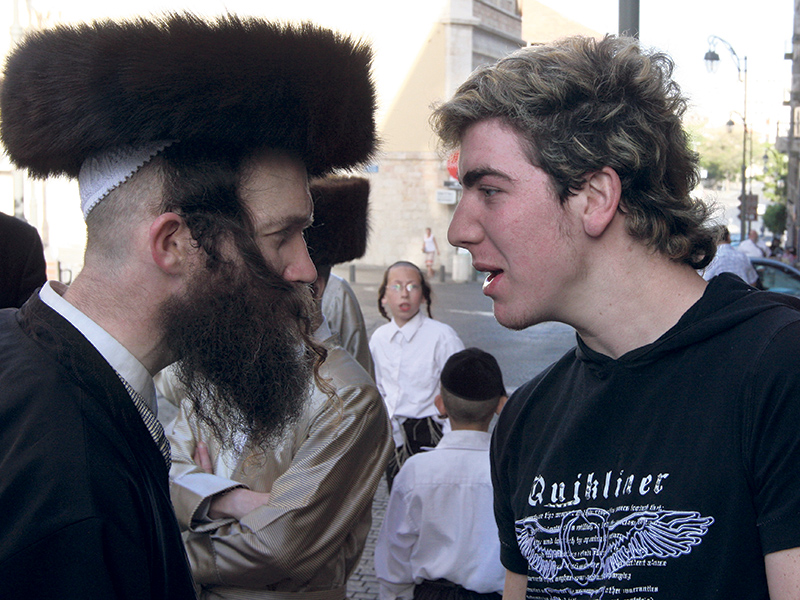Seldom can we know with certainty that we are witness to the turning of history.
But wherever they lived around the world, that’s what Jews knew in their souls as Shabbat approached on May 14, 1948. For then, at the museum in Tel Aviv, the representatives of the Jewish People’s Council gathered to hear the reading of the Declaration of the Establishment of the State of Israel.
The moment was electric with meaning, but celebration would wait until after the nascent state survived the onslaught of five Arab armies.
David Ben-Gurion read the proclamation, channelling the voices of Jewish longing and aspiration through 2,000 years. With emphasis, he read: “We appeal to the Jewish people throughout the Diaspora to rally round the Jews of Eretz Yisrael in the tasks of immigration and upbuilding, and to stand by them in the great struggle for the realization of the age-old dream – the redemption of Israel.”
From around the world, countless men and women – not all, Jews – travelled to Israel to help the Jewish state survive its War of Independence. Indeed, it is no exaggeration to say that without the help of the volunteers from outside Israel, many of whom fell in battle, the fledgling state may not have been able to vanquish the armies intent on crushing it at birth.
Sixty-eight years later, the Jewish People throughout the Diaspora continue to rally round the Jews of Eretz Yisrael. We continue to stand by the State of Israel.
But now, alas, we wonder if it is not unreasonable for the Jews of the Diaspora to ask if the State of Israel stands by us as well, that is, by all of the diverse communities and religious affiliations that comprise the Jews of the Diaspora.
READ: TENSION IN THE HOLY LAND
Last month, the Chief Rabbinate of Israel rejected four conversions approved by the chief presiding judge of the National Beth Din of the Rabbinical Council of America, the main modern Orthodox rabbinical court in the United States. In July, it rejected a conversion performed by the eminent Orthodox New York-based scholar and educator, Rabbi Haskel Lookstein.
Last January, with the participation of the Jewish Agency for Israel, the Netanyahu government agreed to enable prayer services for non-Orthodox Jews at the southern end of the Western Wall near Robinson’s Arch. The government has not yet fulfilled that agreement. Indeed it seems it has no intention of doing so, for fear of offending the far-right religious parties on whom its slender majority rests.
Last month, the Supreme Court of Israel chided the government for its failure to enact its promise to build a prayer facility at the Wall for non-Orthodox Jews. “This is the responsibility of the government,” Chief Justice Miriam Naor said. “It is an issue that needs to be escalated to the appropriate level, because we’re talking about the Western Wall. Things aren’t moving.”
The Wall prayer issue will not be resolved soon, nor will the rejection of select Diaspora Orthodox conversions cease, as long as Israel’s political system allows the haredi establishment that controls the chief rabbinate to act with disdain and caprice toward the Jews of the Diaspora.
In his plea to the Jews of the Diaspora, David Ben-Gurion did not differentiate between Orthodox and non-Orthodox Jews, practising and non-practising Jews, Jewish men and women, when he appealed to the Jewish People throughout the Diaspora to rally round the Jews of Eretz Yisrael.
As long as this unconscionable, hurtful situation continues empowering the Israeli haredi establishment to determine matters of personal Jewish status and practice for Jews around the world, the risk is significant that fewer and fewer Jews of the Diaspora will rally around the Jews of Israel.
Allowing this political/religious status to remain unremediated offends and affronts the remarkable history that occurred so miraculously through the sacrifices of the Jews of Israel and the Jews of the Diaspora together, some 68 years ago.
